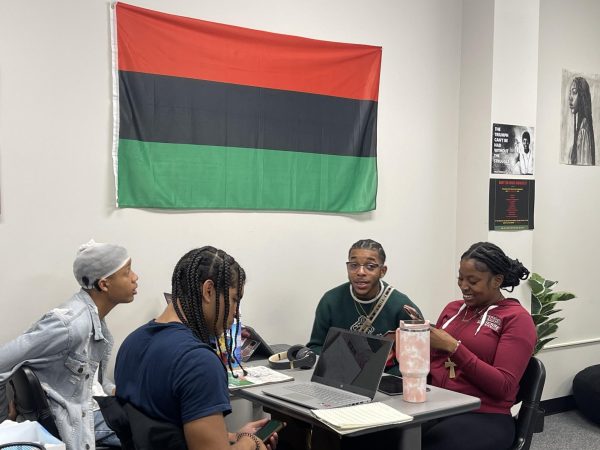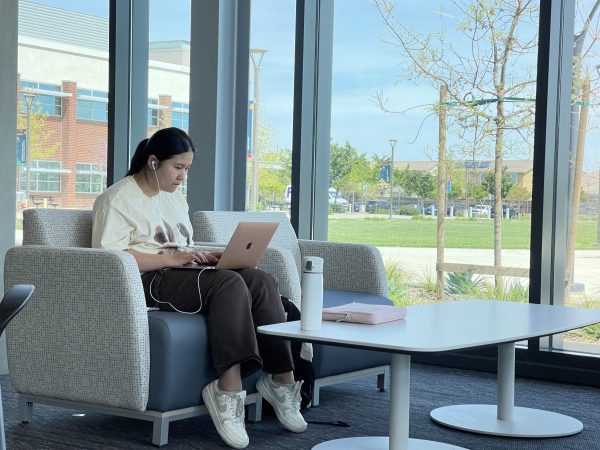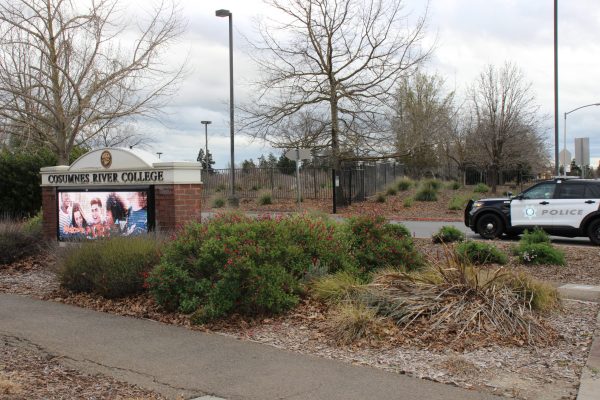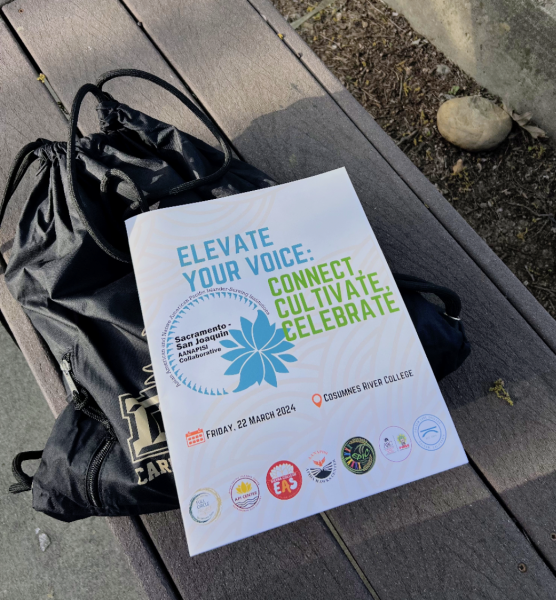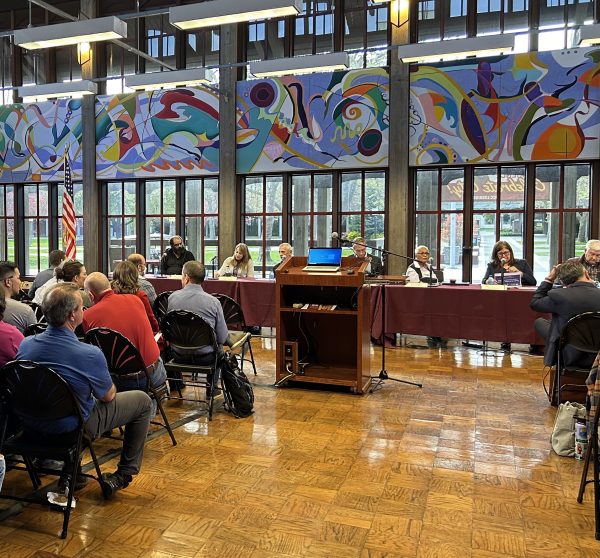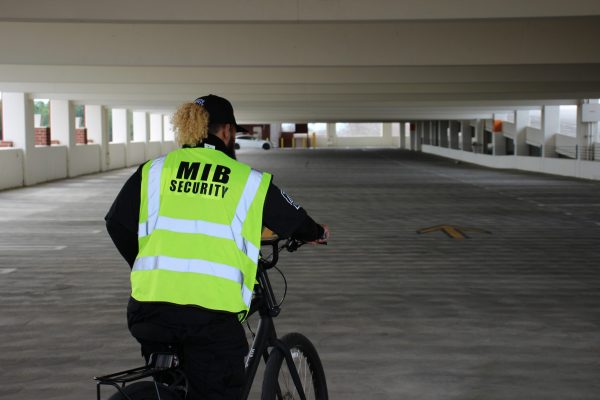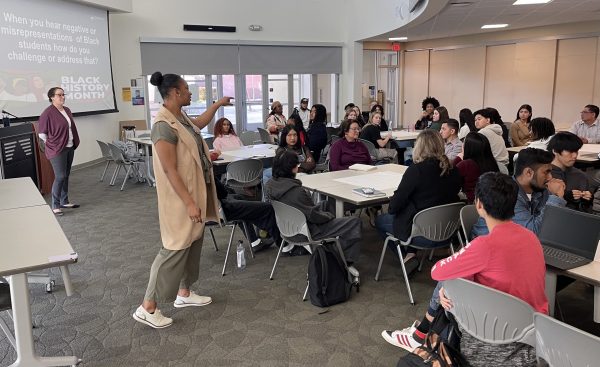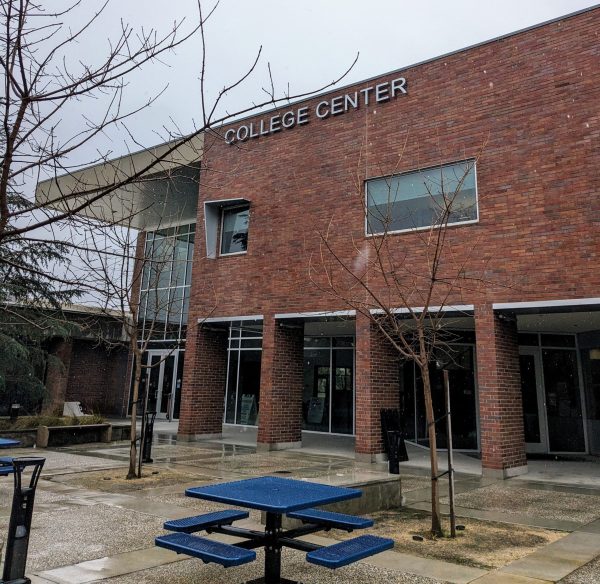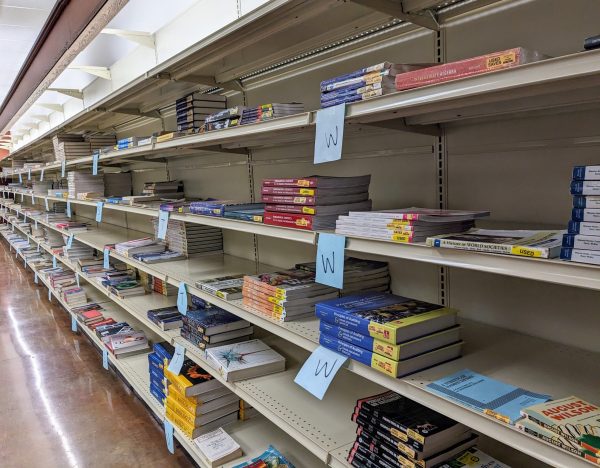Blood donations exceed set goal
Bloodsource came to campus for the first mobile blood drive of the year on Jan. 31 and Feb. 1.
Bloodmobiles were parked on the main walkway in front of the library from 9 a.m. to 3 p.m. on both days of the drive. A registration table and canopy with chairs were set up for students and faculty to register and wait for their turns in the mobile blood units.
It’s important to give blood because you never know who, or how, it will help, said first-time donor, 20-year-old undeclared major Ana Vang.
“I’m donating blood because I just want to,” she said. “I just want my blood to help somebody. Maybe it could help people.”
Whole blood donations that were collected from the drive will be separated into three components – platelets, plasma and red blood cells, which will all be used to treat a variety of different medical needs, according to the Bloodsource website.
The goal for the drive was to collect about 70 donations, said Bloodsource volunteer Moran Henson.
Henson said that donating blood was incredibly important because blood is “a needed resource that is highly in demand, as well as other blood drive products.”
Henson said that around noon was the drive’s busiest time, “because the separation between the morning and the afternoon classes” meant that more students and faculty were coming and going through the walkway past the bloodmobiles and had an hour to spare.
“Since our chairs are already full, we’re doing pretty good,” he said. “And we’re doing pretty well, overall.”
Each donor gives approximately a pint of blood, which can take between five to ten minutes, according to the Bloodsource website.
Those who donated received a complimentary t-shirt from Bloodsource that read “Donating blood is my superpower” and featured a superhero with a bandage on their arm alongside the recognizable figures of Batman, Superman and Wonder Woman.
Nursing major Bianca Aboytes, 19, said it’s important to give often because the blood products collected from donations save lives.
“I’ve been doing it since I was like 15,” she said. “Too many times to count.”
However, Henson said that there are several things which could disqualify a person from being able to donate blood.
“If you’re sick within the last 72 hours, we won’t want to have you donate,” he said. “You won’t have the antibodies themselves. As well as if there’s any antibiotics you’ve been taking, it needs to be three days after your last consumption of antibiotics.”
He also said that there is a quick blood test which the nurses will administer before the donation proceeds which checks the donors’ iron levels. If the test shows that there is an iron deficiency, the donation will not proceed.
“There’s also some travel issues,” he said. “If you’ve been out of the country, or in areas where there might be a high instance say, like, of malaria or tuberculosis, those will disqualify you even if you weren’t in contact with the disease itself.”
Anyone who could not donate at the drive or would like to donate in the future can visit any Bloodsource location with a current photo identification or Bloodsource card. According to the website, those who donated need to wait 56 days before their next donation.
The next campus blood drive will be on May 2–3, from 9 a.m. to 3 p.m.

